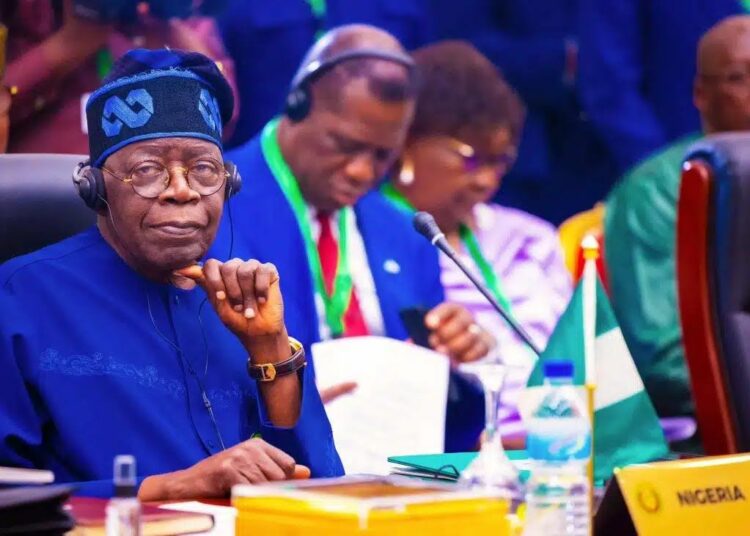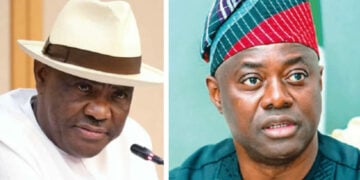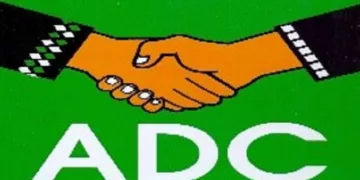The military regimes in the three countries of Mali, Niger Republic and Burkina Faso yesterday announced their immediate withdrawal from the West African bloc, the Economic Community of West African States (ECOWAS), asserting that it had become a threat to member states.
The move appears to have taken the regional bloc aback and it came after protracted disagreements over military takeover of government in the three countries.
The President Bola Tinubu-led ECOWAS had gone tough on the coup leaders in Niger, asking it to return power to the ousted Presiddent Bazoum, imposing economic sanctions and threatening military intervention. But the military leaders in Niamey did not budge; instead they received the backing of military juntas in fellow ECOWAS countries, Mali and Burkina Faso.
In a statement they issued, the leaders of the three Sahel nations said it was their “sovereign decision” to leave the ECOWAS “without delay”.
Barkina Faso, Mali, Niger are founding members of the bloc in 1975 and were suspended from ECOWAS with Niger and Mali facing heavy sanctions as the bloc tried to push for the early return of civilian governments with elections.
They said the sanctions were an “irrational and unacceptable posture” at a time when the three “have decided to take their destiny in hand” — a reference to the coups that removed civilian administrations.
In the midst of the sanction, the three countries refused to shift their positions and rather joined forces in an “Alliance of Sahel States”.
The leaders’ joint statement added that the 15-member ECOWAS, “under the influence of foreign powers, betraying its founding principles, has become a threat to member states and peoples”.
They also accused the regional body of failing to help them tackle the jihadists who swept into Mali from 2012 and then on to Burkina Faso and Niger.
Under pressure from the military regimes, France has removed ambassadors and troops and watched Russia fill the void militarily and politically.
The French army’s withdrawal from the Sahel – the region along the Sahara desert across Africa – has heightened concerns over the conflicts spreading southward to Gulf of Guinea states of Ghana, Togo, Benin and Ivory Coast.
The prime minister appointed by Niger’s regime on Thursday blasted ECOWAS for “bad faith” after the bloc largely shunned a planned meeting in Niamey.
Niger had hoped for an opportunity to talk through differences with fellow states of ECOWAS which had cold-shouldered Niamey, imposing heavy economic and financial sanctions following the military coup that overthrew elected President Mohamed Bazoum.
Niger’s military leaders, wrestling with high food prices and a scarcity of medicines, have said they want up to three years for a transition back to civilian rule.
In Mali, the ruling officers under Colonel Assimi Goita had pledged to hold elections in February this year, but that has now been pushed back to an unknown date.
Burkina Faso, which has not been put under sanctions although Captain Ibrahim Traore seized power in September 2022, has set elections for this summer, but says the fight against the insurgents remains the top priority.
ECOWAS yet to receive formal notification
ECOWAS said it had not received formal notification of withdrawal from the bloc by Mali, Burkina Faso and Niger.
It stated yesterday in Abuja that its attention had been drawn to a broadcast on the national television stations of Mali and Niger announcing the decision of the three countries to withdraw from the union.
“The ECOWAS Commission is yet to receive any direct formal notification from the three member states about their intention to withdraw from the Community.
“The ECOWAS Commission, as directed by the Authority of Heads of State and Government, has been working assiduously for the restoration of constitutional order in those countries.
“Burkina Faso, Niger, and Mali remain important members of the Community and the Authority remains committed to finding a negotiated solution to their political impasses.
“The ECOWAS Commission remains seized with the development and shall make further pronouncements as the situation evolves,’’ it stated. (NAN)
Struggling with jihadist violence and poverty, the regimes have had tense ties with ECOWAS since coups took place in Niger on July 26, 2023, Burkina Faso in 2022 and Mali in 2020. All three were suspended from ECOWAS, with Niger and Mali facing heavy sanctions.
Decision In Breach Of ECOWAS Rule
Despite the reported withdrawal of the three countries, they run the risk of violating Article 91 of the ECOWAS Revised Treaty, which stipulates that no member state can withdraw from the ECOWAS “with Immediate Effect”. The procedure laid down in Article 91(1) of the ECOWAS REVISED TREATY is that a one-year notice is submitted to the ECOWAS President. Thereafter, Article 91(2) of the same says that the government is bound to follow all the laws of ECOWAS even after the submission of a formal request to withdraw until after the one year ends.
Article 91(1) said in part: “Any member state wishing to withdraw from the community shall give to the Executive Secretary one year’s notice in writing who shall inform member states thereof. At the expiration of this period, if such notice is not withdrawn, such a state shall cease to be a member of the community.
“During the period of one year referred to in the preceding paragraph, such a member state shall continue to comply with the provisions of this Treaty and shall remain bound to discharge its obligations under this Treaty.”
This means that if the three countries said on 28th January, 2024, that they wanted to leave ECOWAS, it can only come into force on 28th January, 2025.
Irrespective of this Treaty, the regional bloc appears to be in a dilemma as to how to apply these provisions to the three countries, even if it still considers them members.
Nigeria, Bloc Greatest Losers, Say Experts, CSOs
Meanwhile, security experts and Civil Society Organisations (CSOs) have declared that Nigeria and ECOWAS are the greatest losers in the decision of Mali, Niger and Burkina Faso to withdraw from the regional union, the Economic Community of West African States.
Experts have called for caution over this disturbing development and decried the inability of the Authority of the Heads of State and Government of the West African Community led by Nigerian President Bola Tinubu to resolve this impasse.
Speaking to LEADERSHIP yesterday, a senior lecturer with the Department of Political Science and International Relations, and director of strategic partnership at Al-Muhibbah University, Abuja, Prof. Mukhtar Imam, said the decision of the three countries to quit ECOWAS was as a result of deep grievances that were not amicably resolved.
He said, “There are serious factors that have plagued the sub region in recent years and the entire Africa, which requires more attention.
“This has a very wide implication as ECOWAS is hinged upon economic integration, but the mandate of the body is gradually waning and losing momentum. The reality is that we need to enhance more multilateralism but we are witnessing a decline of that.”
He said also that the situation does not augur well in the area of the economy; stressing that proposed single currency the Eco to deepen integration may not see the light of the day because these are countries that are very crucial although virtually all countries have not met the conditions.
The university feared that this retrogression has implications for the African Continental Free Trade Agreement (ACFTA).
He also noted that it is an indictment on the current Tinubu-led leadership of ECOWAS, which goes to speak to the fact that there are a lot of cracks within their ranks, adding that this is not a very good sign for Nigeria, which prides itself as a leader in the region.
On security, the expert said, “if you look at the countries that announced their withdrawal from ECOWAS, they are countries of the Sahel,” adding that the situation is not looking good for the region in terms of security.
Another expert in international relations, Prof Yusuf Zoaka of the Department of Political Science and International relations, University of Abuja, blamed the ECOWAS leaders who imposed sanctions on the countries without understanding that they were trying to free themselves from the shackles of colonialism from France.
He said, “What these countries tried to do was to regain their independence so that they have development which should have been supported by most of the ECOWAS countries. But we are so fixated about this issue of democracy and once a country is not practising democracy, we move against them even though our own democracy is flawed.
“If what they are doing is to free themselves from imperialism, I think is a welcome development, but if they will later convert themselves into dictators I don’t think that is welcome development,” he said.
He, however, warned that the wider implication is that more countries may be tempted to join the three countries in pulling out of the regional bloc, which will reduce the clout and stature of ECOWAS.
Security expert, Majeed Dahiru, in his reaction said ECOWAS will not be complete without these countries, especially on the issues of insecurity. He said these countries are buffer zones in the Sahel and their pulling out will be difficult for Nigeria in particular.
“My fear is that Niger pulling out will leave our flanks open to attacks by insurgents because Niger has been Nigeria’s most consistent ally in the war against terrorism.”
On the issue of Nigeria’s chances of a seat at the UN Security Council, Majeed said the dream “is farfetched and illusive” because “we don’t have the capacity, we cannot have a seat there.
“Nigeria has no economic power or military capacity and this should not be its priority. We have not secured our borders; therefore we cannot get a seat.”
Specifically, the CSOs said that with the poor handling of the leadership crisis in these countries, Nigeria is the greatest loser.
The CSOs who spoke to LEADERSHIP are: Transparency International (TI), the Civil Society Legislative Advocacy Centre (CISLAC), and the Transition Monitoring Group (TMG).
They said that these countries did not see any value or the need to remain in ECOWAS, adding that ECOWAS and the Nigerian government have overplayed the crisis but are now the losers, sadly.
Speaking through their leader, Awwal Musa Rafsanjani, the CSOs said that since Nigeria couldn’t push for the resolution of the leadership crisis with the juntas, they are now the greatest loser as the country needs their neighbours to get the Security Council seat.
The CSOs said what the three countries did is the best response to ECOWAS and Nigeria who do not seem to understand it was time to engage the military junta in productive engagement.
“The citizens are in support of the kind of leadership they have and you don’t just start bombing them,” the CSOs said through their leader, Awwal Musa Rafsanjani.
“I think Nigeria is the greatest loser because Nigeria needs the support of these West African countries for its regional leadership. Nigeria failed to create a better way forward. You don’t have to be strict on an issue you have no legal or constitutional binding power to push these leaders out.
“All you have done is to push for the return of the civilian regime in these countries as soon as possible. Now that these countries have walked out of ECOWAS, it is Nigeria who largely will lose because we need Mali, Niger, and Burkina Faso at both regional and international levels to support Nigeria in its quest for a leadership position in the Security Council.
“So, these countries have found out that they don’t need ECOWAS to survive. They have been out of ECOWAS for several months and life goes on.
“Their condition has not worsened without ECOWAS so they can as well get out of that union, that marriage of inconvenience because ECOWAS has not helped them in times of dealing with poverty, insecurity and infrastructure deficit.
“ECOWAS and the Nigerian government have overplayed this and they are now the losers sadly,” the CSOs added.





